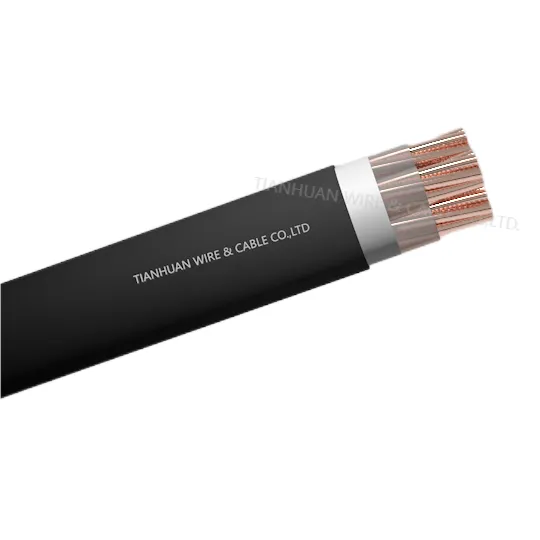
custom type of electric circuit in a house
Understanding Custom Types of Electric Circuits in a House
Electric circuits are fundamental to our daily lives, powering everything from our kitchen appliances to our entertainment systems. In residential settings, the design and configuration of these circuits play a critical role in ensuring safety, efficiency, and convenience. This article delves into the custom types of electric circuits found in modern homes, their applications, and the considerations homeowners should keep in mind.
1. Basic Types of Electric Circuits
Electric circuits in a house are generally categorized into two types Series Circuits and Parallel Circuits.
- Series Circuits connect components end-to-end, forming a single path for current flow. While simple and cost-effective, series circuits have a major drawback if one component fails, the entire circuit is interrupted. This is why series circuits are less common in residential wiring.
- Parallel Circuits, on the other hand, allow multiple pathways for electricity to flow. This configuration is widely used in homes because if one device fails, the others remain functional. Most household circuits are designed in parallel to ensure consistent power delivery to various appliances.
2. Custom Circuits for Specific Needs
As technology evolves, so too do our electrical needs. Custom circuits can be tailored for specific applications, enhancing performance and safety in residential settings. Here are some common types of custom circuits
- Dedicated Circuits These circuits are assigned to single appliances, such as refrigerators, washing machines, or home theater systems. Dedicated circuits help manage the heavy electrical load of certain devices without risking breaker trips or overloads.
- 20-Amp Circuits Typically used for kitchen and dining room circuits, a 20-amp circuit accommodates high-wattage appliances like toasters or microwaves, ensuring they operate safely and efficiently
.- GFCI Circuits (Ground Fault Circuit Interrupter) Mandatory in areas prone to moisture—like kitchens, bathrooms, and outdoor spaces—GFCI circuits provide critical protection against shock and electrical fires. They detect ground faults and cut power almost instantly to minimize danger.
custom type of electric circuit in a house

- AFCI Circuits (Arc Fault Circuit Interrupter) Recognizing the potential for electrical fires due to arcing conditions in overloads, AFCIs are required in many bedrooms and living areas. They detect arcing faults and shut down the circuit before a fire can start.
3. The Role of Smart Circuits
The advent of smart home technology has revolutionized how we interact with our electrical systems. Smart circuits incorporate advanced technology, enabling homeowners to control and monitor their energy usage remotely. Smart circuits can include
- Smart Switches Allowing users to control lights and appliances via smartphones or voice commands, enhancing convenience.
- Smart Thermostats Learning user preferences and optimizing heating/cooling schedules to reduce energy consumption.
- Home Energy Management Systems (HEMS) Providing real-time insights into energy consumption patterns, aiding in energy conservation strategies.
4. Safety and Compliance Considerations
When establishing custom circuits, it’s vital to adhere to local electrical codes and standards. Hiring a licensed electrician is crucial for ensuring that all installations are safe and compliant. This not only protects the home and its inhabitants but also preserves the integrity of the electrical system.
5. Conclusion
Custom electric circuits are essential to modern residential life, offering solutions tailored to the specific needs of homeowners. From dedicated circuits for high-wattage devices to advanced smart technology that enhances convenience and efficiency, understanding these circuit types is critical. As we continue to adopt new technologies and adapt our living spaces, the importance of well-designed electrical circuits will only grow, supporting our energy needs while prioritizing safety and efficiency. Homeowners should remain informed about their electrical systems and consider custom solutions to enhance functionality, safety, and convenience in their homes. By doing so, they can enjoy a seamless integration of technology and comfort, paving the way for smarter living.
-
Reliable LIYCY Cable Solutions for Low and Medium Voltage ApplicationsNewsJul.14,2025
-
Premium Overhead Electrical Wire Solutions for Low and Medium Voltage ApplicationsNewsJul.14,2025
-
Innovative XLPE Electrical Cable Solutions for Modern Low and Medium Voltage NetworksNewsJul.14,2025
-
High-Quality Ethylene Propylene Rubber Cable – Durable EPDM Cable & 1.5 mm 3 Core OptionsNewsJul.14,2025
-
Exploring the Versatility of H1Z2Z2-K 1X4mm2 Cables in Modern ApplicationsNewsJul.14,2025
-
Uses of Construction WiresNewsJul.14,2025
-
Types of Neoprene CableNewsJul.14,2025














